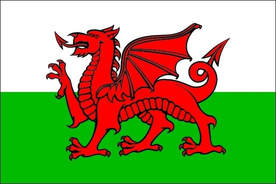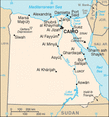Is it really so great knowing another language? The honest answer is it depends on how you use it and the reasons for how you came to know more than one language.
For some people, knowing more than one language comes about because they had been hearing two (or possibly more) languages since day one in their home environment. It was the norm to switch from one language to another with certain family members or friends, throwing in the odd borrowed word or two. Borrowed, that is, from the other language they are accustomed to.
It is common for this interchangeable use of language to extend beyond the rapid, frequent switching in individual conversations to automatically selecting which language to speak with certain individuals. With one family member, neighbour or friend, English may be the natural choice, whereas the other equally familiar or fluent language is always spoken with another.
Where children learn the language of a parent who is from a country outside of the country in which they now live, and where there are substantial cultural differences, or often differences in the ethnicity of the people of the country in which the child is growing up and the parent’s country of birth, these distinctions often provide the basis for the choice of language to be used.
Take the example of a Mexican friend of mine whose son grew up in England. Having grown up with a Mexican mother and an English father, he often associated Latin American Spanish with people of a similar appearance to his mother, and English with everyone else. Despite my professional position as a Spanish language specialist in the legal field, and thus my fluency in Spanish, and in the American variety in particular, my addressing him in Spanish often brought about a stunned reaction in the youngster who seemed happier hearing me say “Hi” instead of “Hola”!
For some people, knowing more than one language comes about because they had been hearing two (or possibly more) languages since day one in their home environment. It was the norm to switch from one language to another with certain family members or friends, throwing in the odd borrowed word or two. Borrowed, that is, from the other language they are accustomed to.
It is common for this interchangeable use of language to extend beyond the rapid, frequent switching in individual conversations to automatically selecting which language to speak with certain individuals. With one family member, neighbour or friend, English may be the natural choice, whereas the other equally familiar or fluent language is always spoken with another.
Where children learn the language of a parent who is from a country outside of the country in which they now live, and where there are substantial cultural differences, or often differences in the ethnicity of the people of the country in which the child is growing up and the parent’s country of birth, these distinctions often provide the basis for the choice of language to be used.
Take the example of a Mexican friend of mine whose son grew up in England. Having grown up with a Mexican mother and an English father, he often associated Latin American Spanish with people of a similar appearance to his mother, and English with everyone else. Despite my professional position as a Spanish language specialist in the legal field, and thus my fluency in Spanish, and in the American variety in particular, my addressing him in Spanish often brought about a stunned reaction in the youngster who seemed happier hearing me say “Hi” instead of “Hola”!
PNow, before any reader concludes that the child was being awkward, let me give another example. In my travels over the years, be them in Spanish, Portuguese or French speaking countries, I have always been met with stunned, confused expressions by many people from the respective countries on addressing them in their language. It is important to acknowledge that mannerisms, physical attributes and facial features have much to do with people’s associations and therefore, expectations.
In popular tourist areas it would not be extraordinary for a native of a given country to presume someone with a typically British or typically German look, for instance, only speaks the language of their (presumed) respective country. Put yourself in that person’s place and take that expectation developed over some time and suddenly find yourself face-to-face with someone who looks very different to you and doesn’t sound like you expect them to. It then suddenly clicks that they are not speaking some strange language or bizarre dialect of English, but have actually spoken your language in a very “normal” manner. Perhaps somewhat ironically, however, the First Minister of the Welsh Government, which is not led by Plaid Cymru, is a native Welsh speaker, whereas the leader of Plaid Cymru, is in fact an adult learner of the language!
Please don’t take from this that encounters with speakers of other countries, whether in their countries or elsewhere, are negative ones. Such encounters more often than not elicit a smile, a friendlier and more relaxed approached on feeling the relief that they can communicate with this other person without the effort of “searching” for foreign vocabulary.
So, the young boy of Mexican parentage was only doing what many of us instinctively do as the creatures of habit that humans are.
Can speaking more than one language represent more than simply devotion to linguistic or genetic heritage?
Let’s look at Wales. A bilingual country often wrongly and annoyingly referred to as “England” by many non-British people. And, sadly, by some English people! I have known Welsh citizens who were born into Welsh speaking families and attended Welsh medium schools. In some parts of the country, Welsh is the language in which many hold the majority of their conversations. In others the opposite is true. Nonetheless, this does not make them any less passionate about their language, the language of their country, regardless of their background and linguistic roots.
Wales is an obvious example of the importance of language and how language can shape society. Language represents the history of a people, its traditions, its values, its culture and its strengths and weaknesses. It is the vehicle of communication from generation to generation and without it all sense of cultural and national identity is lost.
The degree of respect many Welsh have for their language and identity is reflected even in the country’s political scene. The members and supporters of Plaid Cymru (the Party of Wales) range from being native bilingual Welsh speakers while others have learned the language as proud Welsh men and women. Whether or not one of these groups is more enthusiastic in their use of the language remains to be proven.
What is unquestionable is that the cultural identity, values and pride reflected in the Welsh language are such as to be a catalyst for social and political change among its speakers. The same can undoubtedly be said about speakers of other languages, particularly, the native, minority or even tribal languages of Latin America and Africa respectively.
It is arguable, however, that, as with many things in life, language is something many take for granted. If you have beautiful landscapes, protected coastline and historic monuments on your doorstep, many of us overlook their virtues, mentally categorising these treasures as last resort places of interest. Could the same be said of language? Especially if any sense of all that language represents for a people is lost to some? Again, I would say undoubtedly it does.
In popular tourist areas it would not be extraordinary for a native of a given country to presume someone with a typically British or typically German look, for instance, only speaks the language of their (presumed) respective country. Put yourself in that person’s place and take that expectation developed over some time and suddenly find yourself face-to-face with someone who looks very different to you and doesn’t sound like you expect them to. It then suddenly clicks that they are not speaking some strange language or bizarre dialect of English, but have actually spoken your language in a very “normal” manner. Perhaps somewhat ironically, however, the First Minister of the Welsh Government, which is not led by Plaid Cymru, is a native Welsh speaker, whereas the leader of Plaid Cymru, is in fact an adult learner of the language!
Please don’t take from this that encounters with speakers of other countries, whether in their countries or elsewhere, are negative ones. Such encounters more often than not elicit a smile, a friendlier and more relaxed approached on feeling the relief that they can communicate with this other person without the effort of “searching” for foreign vocabulary.
So, the young boy of Mexican parentage was only doing what many of us instinctively do as the creatures of habit that humans are.
Can speaking more than one language represent more than simply devotion to linguistic or genetic heritage?
Let’s look at Wales. A bilingual country often wrongly and annoyingly referred to as “England” by many non-British people. And, sadly, by some English people! I have known Welsh citizens who were born into Welsh speaking families and attended Welsh medium schools. In some parts of the country, Welsh is the language in which many hold the majority of their conversations. In others the opposite is true. Nonetheless, this does not make them any less passionate about their language, the language of their country, regardless of their background and linguistic roots.
Wales is an obvious example of the importance of language and how language can shape society. Language represents the history of a people, its traditions, its values, its culture and its strengths and weaknesses. It is the vehicle of communication from generation to generation and without it all sense of cultural and national identity is lost.
The degree of respect many Welsh have for their language and identity is reflected even in the country’s political scene. The members and supporters of Plaid Cymru (the Party of Wales) range from being native bilingual Welsh speakers while others have learned the language as proud Welsh men and women. Whether or not one of these groups is more enthusiastic in their use of the language remains to be proven.
What is unquestionable is that the cultural identity, values and pride reflected in the Welsh language are such as to be a catalyst for social and political change among its speakers. The same can undoubtedly be said about speakers of other languages, particularly, the native, minority or even tribal languages of Latin America and Africa respectively.
It is arguable, however, that, as with many things in life, language is something many take for granted. If you have beautiful landscapes, protected coastline and historic monuments on your doorstep, many of us overlook their virtues, mentally categorising these treasures as last resort places of interest. Could the same be said of language? Especially if any sense of all that language represents for a people is lost to some? Again, I would say undoubtedly it does.
How else do people come to speak other languages?
My personal interest in languages developed early in my teens from a fascination with the map of the world. I was fascinated by what these countries were called, what the people looked like and began to link references I’d heard to nationalities and countries with their geographical reality. One example is of Argentina in respect of which, as an 11-year-old about to start high school, I had heard lots of reference to the “Argies” from schoolmates as this was at the time of the Falklands conflict.
Another example is that around that time I was also hooked on tennis and not only played but spent at least a couple of summers watching Wimbledon where many international tennis stars became known to me, including also a particular Argentinian player.
Following that the main subjects of interest to me in high school were Latin, French, German and Spanish. But for some reason I hated English. Quite possibly because I think it was more about creative writing rather than linguistic study per se which the other languages were about, and which was necessary to learn those languages.
So, is speaking more than one language all it is cracked up to be?
When I first started putting my Spanish into practice, this being the first foreign language I had learned and had the opportunity to use in “real life”, I started to look more at the structure of the English language.
The first things I began to analyse were common or colloquial phrases. When I translated these into English I came to understand the structure of and real meaning behind phrases I had used most of my life up till then. For instance, in school I remember the frequently used phrase “You’ve got sick taste”, which was commonly heard to express disagreement with someone’s preference. To hear a young Spanish speaker comment “Tienes el gusto enfermo” made me stop and think.
Breaking down that phrase, bearing in mind the adjective follows the noun in Spanish as with many languages first we have (literally) “you have the taste”. The “enfermo” was what made me think. Previously, I had only used, heard and read that word when it indicated personally feeling ill, poorly, sick etc.
Suddenly, this was not even an inanimate object being referred to as sick but a concept, and something we don’t think about in our mother tongue because it’s learned parrot fashion in a sense. In other words, by not stopping to think about our mother tongue, we take it for granted and only start to analyse it when we begin to write seriously or professionally, or compare and contrast it with other language structures.
This analysis of my own native language, British English, extended to my professional practice as a legal document specialist translator. I believe having this instinctive ability to break down both English and the other language I was translating was extremely beneficial when finding English law or commercial equivalents. The ability to work out and “find” legal and linguistic equivalents quickly is certainly a plus when it comes to accurate legal translation required within a very specific deadline!
So, is knowing more than one language so great? I think it is. For me, not only do I feel I have a deeper understanding of my first language as a result of this knowledge, many personal friendships and experiences would never have existed without my passion for languages.
Similarly, my knowledge of other language structures has also enhanced my social and cultural awareness of other nationalities that would not have developed otherwise. And perhaps that is a topic for another article.
My personal interest in languages developed early in my teens from a fascination with the map of the world. I was fascinated by what these countries were called, what the people looked like and began to link references I’d heard to nationalities and countries with their geographical reality. One example is of Argentina in respect of which, as an 11-year-old about to start high school, I had heard lots of reference to the “Argies” from schoolmates as this was at the time of the Falklands conflict.
Another example is that around that time I was also hooked on tennis and not only played but spent at least a couple of summers watching Wimbledon where many international tennis stars became known to me, including also a particular Argentinian player.
Following that the main subjects of interest to me in high school were Latin, French, German and Spanish. But for some reason I hated English. Quite possibly because I think it was more about creative writing rather than linguistic study per se which the other languages were about, and which was necessary to learn those languages.
So, is speaking more than one language all it is cracked up to be?
When I first started putting my Spanish into practice, this being the first foreign language I had learned and had the opportunity to use in “real life”, I started to look more at the structure of the English language.
The first things I began to analyse were common or colloquial phrases. When I translated these into English I came to understand the structure of and real meaning behind phrases I had used most of my life up till then. For instance, in school I remember the frequently used phrase “You’ve got sick taste”, which was commonly heard to express disagreement with someone’s preference. To hear a young Spanish speaker comment “Tienes el gusto enfermo” made me stop and think.
Breaking down that phrase, bearing in mind the adjective follows the noun in Spanish as with many languages first we have (literally) “you have the taste”. The “enfermo” was what made me think. Previously, I had only used, heard and read that word when it indicated personally feeling ill, poorly, sick etc.
Suddenly, this was not even an inanimate object being referred to as sick but a concept, and something we don’t think about in our mother tongue because it’s learned parrot fashion in a sense. In other words, by not stopping to think about our mother tongue, we take it for granted and only start to analyse it when we begin to write seriously or professionally, or compare and contrast it with other language structures.
This analysis of my own native language, British English, extended to my professional practice as a legal document specialist translator. I believe having this instinctive ability to break down both English and the other language I was translating was extremely beneficial when finding English law or commercial equivalents. The ability to work out and “find” legal and linguistic equivalents quickly is certainly a plus when it comes to accurate legal translation required within a very specific deadline!
So, is knowing more than one language so great? I think it is. For me, not only do I feel I have a deeper understanding of my first language as a result of this knowledge, many personal friendships and experiences would never have existed without my passion for languages.
Similarly, my knowledge of other language structures has also enhanced my social and cultural awareness of other nationalities that would not have developed otherwise. And perhaps that is a topic for another article.




